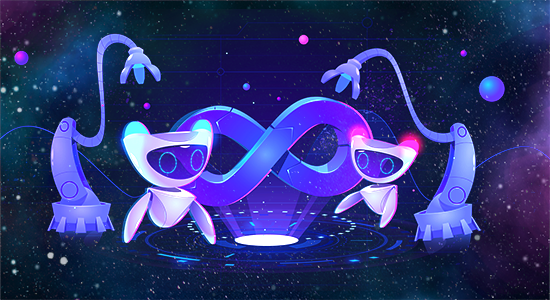
Will We Become Immortal Androids?

H1: Will humans become immortal androids? What you need to know about the quest to live forever
The fight against ageing is on. But will tech ever let us unlock eternal life? A top futurist gives us their key learnings to answer the question: is immortality possible? | 15 AUGUST 2021
There’s nothing new about the quest for eternal life. But with biohacking and health tech companies ploughing millions into the fight against death, being able to live forever is starting to look feasible for the first time. But how does that work? What might that eternal life be like? And is it something people really want? How close are we to immortality? To find out what the future might hold, we spoke to top futurist Dr Ian Pearson. Here are his insights.
H2: 1. How close are we to immortality? You probably won’t live beyond 120 if you rely only on biotech
Biotech and biohacking are making huge advances in terms of lengthening our lives. Through beginning to think of ageing as a disease rather than an inevitability, health tech companies are becoming incredibly effective at battling age-related diseases. However, it increasingly looks like there will be an upper limit as to how effective their efforts will be, with a recent study from Oxford’s Leverhulme Centre for Demographic Science showing that there is definitely an upper limit as to how much you can slow biological ageing, making human immortality still out of reach.
“The bio-tech people are doing everything possible to extend your biological health and they’re making good progress in dealing with things like Parkinson’s, Alzheimer’s and heart disease,” says Dr Ian Pearson. “A lot of people might live past a hundred, but a lot of scientists are saying that we probably won’t be able to live much longer than 120. So the bio-tech people might fizzle out once you get to the 120 level.” This still makes us wonder: will humans ever be immortal?
H2: 2. Is Immortality possible? Yes, with computers
Biohackers aren’t the only ones that can help with life extension, however. There are also IT based solutions which involve the interface between computers and the human mind, to expand the potential of human immortality. According to Dr Pearson, this approach might genuinely let us attain something that’s very close to eternal life.
“There’s almost no limit to how long that might extend our life by, really. By 2050, it looks like the link between electronic devices and our brain will be so good that you’re essentially extending your mind into cyberspace,” says Dr Pearson. “So when your body degrades, it doesn’t matter so much, as you can still have your mind running on a server farm.” If you’re wondering, “is it possible to be immortal?” The answer is yes if you’re planning to sync your mind with a computer.
H2: 3. The IT/brain interface will completely redefine our concept of being alive
For thousands of years, we’ve thought that life involved being able to breathe, or to have a beating heart. But at the point where we start running our minds solely on computer servers, that changes. And so does our whole concept of what it is to be alive. “What you have got is indefinite electronic immortality. It’s not strictly eternal life as it would end if you switched off the servers,” says Dr Pearson.
“But you could link those servers back to an android, so that even after your body’s biologically dead, you can carry on as a physical presence. We could even begin to communicate and share ideas directly through thought, like in a hive mind. It does change the nature, potentially, of human existence.” The question then changes from: “is immortality possible” to “what does human immortality mean?”
H2: 4. Expect electronic human immortality to cause a lot of problems, though
You don’t need to be a genius to work out that there are likely to be a lot of difficulties with a system which means that no-one will ever die. Dr Pearson thinks that health tech advances could already mean that those who’ll be alive at the point where electronic human immortality is available includes “anyone under the age of 40 today”. But at first, the tech will be prohibitively expensive, so at least initially, there will become a wealth-based divide between those who do and don’t die.
There are also environmental concerns with a system where we need enough server farms to store the mind of every human who has ever lived, no matter how many more are born. So, potentially, electronic immortality might never take off.
“It’s technologically feasible, but there’s no guarantee it will happen. It may well be made illegal, as whilst a lot of people will love the idea, there will be many who really don’t want us to go down the super-human, trans-human route,” says Dr Pearson. “I think there will be potential conflict between those camps. I don’t think it will be a peaceful transition to this future.”
H2: 5. Ultimately, the biggest question will be: “Do we really want to live that long?”
Transmogrifying into a never-ending presence isn’t necessarily everyone’s idea of a brilliant time. However, given that it’s likely to become a reality, it’s a decision that most of us will eventually have to wrestle with. And at the point where you need to decide, it might be difficult to predict what your verdict will be.
“We’re already doing things like linking fitbits to ourselves. Over the next 10 or 15 years, we’ll get more used to the idea of having our IT linked to us,” says Dr Pearson. “So we may well become very receptive to having our brains connected, and having the extra IQ, extra sensory capability and eventually the electronic immortality. As people get used to this technology linking us to the machine world, negative views about it might evaporate over the coming years.”
